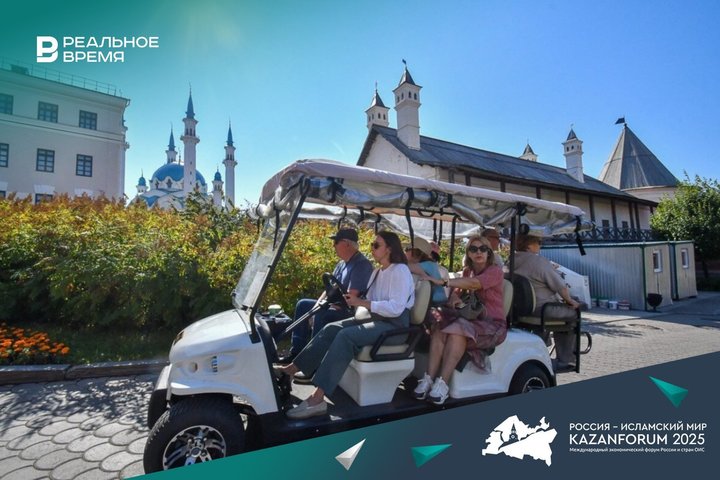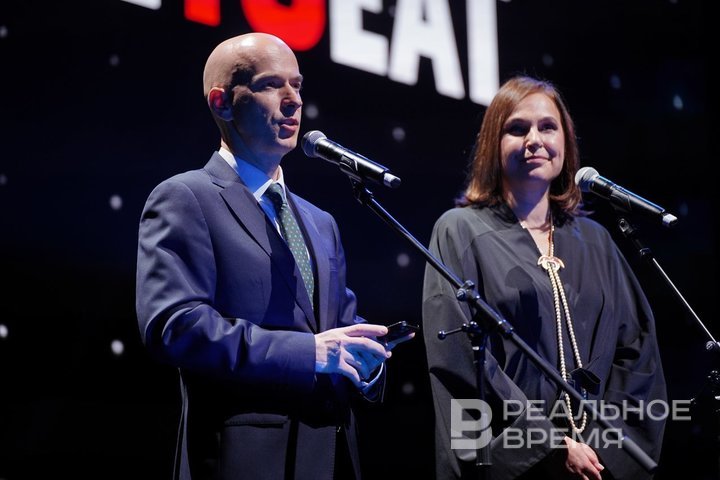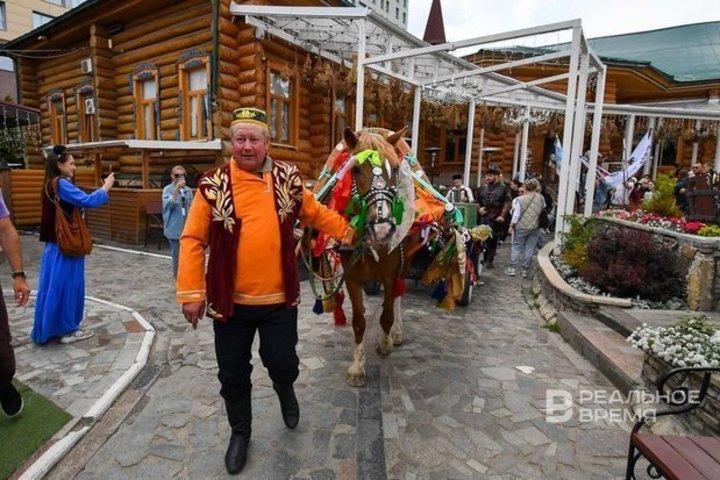Tatarstan — a point of Islamic tourism: how to improve compliance with standards?
Issues faced by tourists from OIC countries and improvements to the Muslim Friendly certification have been discussed at KazanForum

Tatarstan has become a new destination in the Time to Travel catalogue, with a route tailored for tourists from Islamic countries. And this is no coincidence — the republic has created nearly all the necessary conditions for a comfortable stay for guests from OIC member states. However, certain aspects still require further improvement. At the same time, the Muslim Friendly standards are evolving — in this regard, the certification requirements for establishments need to be tightened. Islamic tourism was the focus of one of the sessions at the Russia — Islamic World: KazanForum; read more in the Realnoe Vremya report.
2 billion potential Islamic tourists
The global Islamic tourism market continues to show steady growth — in the first half of 2024 alone, 80 million trips were made. Experts at Crescent Rating forecast an increase to 230 million by 2028. This was reported by Oleg Kochug, the director of the Centre for the Development of International Tourism at the CSR, during one of the sessions at the Russia — Islamic World: KazanForum economic forum.
“The main tourist flow comes from the Middle East, Southeast Asia, and Central Asia. This necessitates the adaptation of existing infrastructure to Islamic standards: restaurants, accommodation, and leisure activities,” he noted.
At this point, Kochug announced a new Tatarstan route for Islamic tourists, which has been included in the Time to Travel catalogue.
“Until today, the Discover Russia programme for tourists from Muslim countries included five routes. Today, it is joined by a premium-class family journey through Tatarstan, combining comfort, culture, and adventure. The route offers an introduction to Kazan’s historical landmarks, a river cruise along the Volga, relaxation in the forest, and a deeper look into local traditions. The programme includes activities for families with children, which is especially important for tourists from Islamic countries. Gastronomy is also given significant attention.”
Tatarstan is a centuries-old centre of Islamic culture, the speaker emphasised. This view was echoed by Sergey Ivanov, the chairman of the State Committee of the Republic for Tourism. According to him, this area holds great potential for Tatarstan:
“Tours for travellers from Islamic countries represent a vast market segment. We are aware that the share of tourists coming to Russia from those countries is growing every year. Firstly, because the population there is increasing at a faster rate, and secondly, because global shifts are refocusing attention on Asian countries. Therefore, the prospects for the development of such tours are immense, with the market estimated at 2 billion potential travellers.”
Strengths and areas for improvement
Tatarstan has undoubtedly created favourable conditions for tourists from Islamic countries. This is supported by the cultural and religious affinity with the Muslim East, as well as the active development of event tourism. According to Kochug, the republic is home to 1,582 mosques and several restaurants that meet the Muslim Friendly standard.
“Kazan offers the best conditions for Islamic tourists: a large number of restaurants, hotels, tour guides, tourist centres, and mosques where one can perform namaz. Forums focused on Islamic countries have made it possible to gain extensive experience in working with guests from these regions,” Ivanov agreed.

Firstly, the committee chairman continued, half of the republic’s population is Muslim, so catering to tourists from Islamic countries presents no difficulty. Secondly, as the industry prepares for such events, it incorporates standards into daily operations. Many hotels offer halal menus not only for special forums — they are available year-round.
Nevertheless, despite these advantages, there are aspects that still require improvement.
“I believe, first and foremost, these issues relate to passport control procedures — there are no separate screening booths. The usual process, as we are accustomed to, does not allow for proper screening. While this topic is not currently under active discussion, it does come up periodically at forums. I think sooner or later we will reach Islamic standards, where additional conditions will be created for women from Islamic countries during screening procedures,” Ivanov responded to a question from a Realnoe Vremya correspondent.
The second problematic issue, according to the speaker, is the lack of language skills. Currently, hospitality staff do not speak the less common languages that are often official languages in OIC countries.
How to improve certification according to Muslim Friendly standards
“Tourism based on the Muslim Friendly standards constitutes a large part of the Russian service ecosystem,” began his speech Abbas Shlyaposhnikov, the chairman of the Halal Standards Committee of the Spiritual Administration of Muslims of Tatarstan, “The certification requirements take into account the experience of both Russian and foreign colleagues.”
The Muslim Friendly certificate is awarded to organisations that meet halal standards. Currently, for example, the Tugan Awylym complex holds this designation, Shlyaposhnikov added.
“Muslim Friendly is a relatively new concept in Russia. As the system is still in its early stages, we need to analyse existing problems and feedback from Islamic tourists, and then adjust the standards accordingly,” the speaker said.

According to him, currently there exist several such issues:
- development of GOST standards: “they should include minimum and strict requirements. Establishments will then choose the level of compliance they wish to achieve”;
- unified registry: “it is necessary to create a unified registry of hotels with the ‘Muslim Friendly’ certificate based on the example of Tatarstan, indicating the level of compliance of each hotel”;
- tightening of conditions: “we should stop involving organisations that issue certificates based on the hall alone, without additional verification of the establishment.”
Shlyaposhnikov also spoke about the problems faced by Islamic tourists. These include staff being unaware of the “new Islamic ethics,” the inclusion of non-permissible dishes in purported halal menus, and the absence of halal hygienic products.
“We propose conducting regular training sessions for hotel staff, implementing GOST standards for menus, and using certified hygienic products. All these problem areas should form the foundation for the development of Muslim Friendly. Only by building dialogue can we begin a partnership,” he explained.